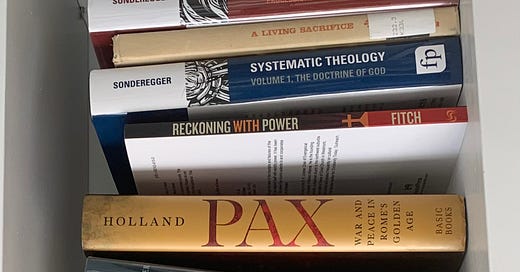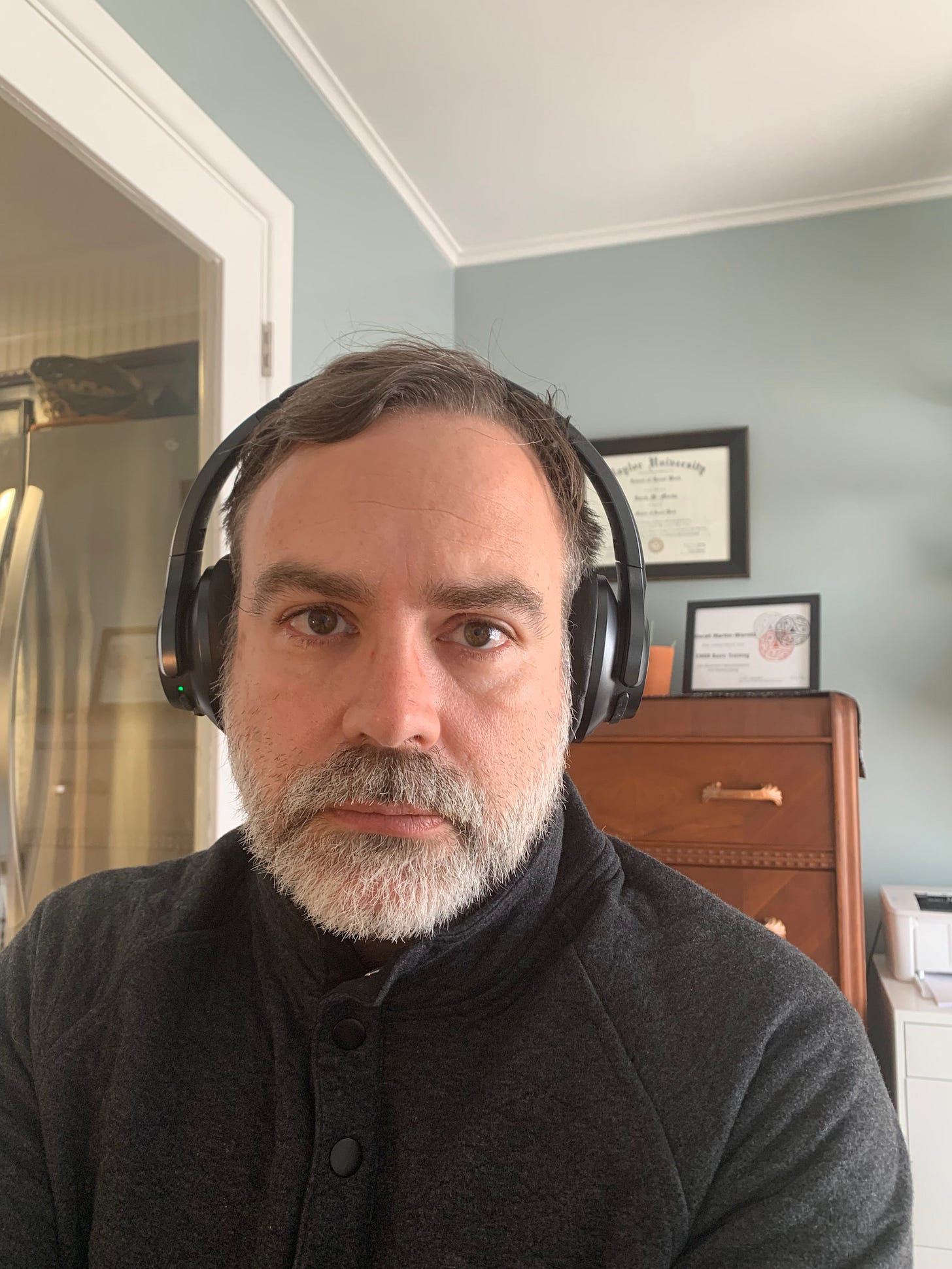A metaphor for reading plans, and an invitation for 2024. Supporting subscriptions are 50% off for the remainder of the month.
Reading is Like Growing a Tree
Everyone who reads has a plan.
As much as I subscribe to the whimsy mode of reading—to read for delight and wisdom—there’s still a level of intention here. If this is your aim, then you’re actively taking on books that for that wide parameter, and leaving off books that don’t fit that.
As a voracious reader, I’m fortunate that my day job involves tons of reading, not all of which is for public consumption. But I think about my reading in terms of a broad agricultural analogy: some of it is for cultivating a better soil, some of it is for addressing a particular problem with what is growing, some of it is trimming out those things which need to be trimmed both intellectually and spiritually. Like anything agricultural, there is some intention, some responsiveness, and an overall sense of what the intended plant is for: reading involves a sense of where you want to go, and then determining what kind of things are needed toward that end, even if it’s a work in progress.
In adopting this analogy for reading, there a few things that I don’t generally subscribe to about reading habits. First, I don’t buy into lists, as if becoming good was either a matter of being well-read (or a matter of reading for that matter). Second, while I pilfer from the lists of others, I give the books the attention they deserve to do their work. If books sit on my desk or in my to-be-read pile for years on end: I’ll get there when I get there, and if I never get there, it’s not a matter of deep regret, as there are innumerable things I love that you’ll never get to. And finally, I refuse to get anxious about what I haven’t read yet. The “must read” books tend to get eaten by the second-wave backlash before I get there, due to the number of other things that I have to read for teaching and writing.
There’s a lot of whimsy in there: I rarely go for “best of” lists and there are must-reads that I have shared by a handful, but it’s a consequence of knowing what I want. It’s not an absolute rule, and it’s one that I consciously try to break, knowing my own limits and habits.
As such, my reading list for any given season of life tend to be fairly eclectic.
Some things I am reading purely because I have to teach them. Some things for different writing projects that I’m interested in, or because someone is paying me to read them. And the largest stack is a stack of things that I read because I’m curious about a lot of things and want to have them as conversation partners for the more targeted topics about which I write and teach regularly. One of the things that I love most about ethics is that it draws on so many other disciplines, and topics, that, eventually most of my reading finds its way into my thinking and teaching and writing.
On my bedside table currently, for example, are two books by John Cassian on ancient Christian monastic spirituality, The Spy Who Came In From the Cold,
and ’ recent book, and The Illiad. It all makes sense to me if no one else.The things that I need to read for particular writing projects are pretty well-mapped out, and the things which I’ll read for responsive reasons I can’t predict yet. But it’s the seedbed books which are most interesting anyway, because you don’t know what fruits they will yield once you add these works to the humus of the mind.
I have a few books that I am reading in 2024 as part of my ongoing seedbed reading, books which will help me to have a deeper moral and theological imagination to draw from. In no particular order:
—The Illiad and The Odyssey
—Pensees, by Pascal
—The Analects, by Confucius
—Dusk of Dawn, by WEB Dubois
—both volumes of Kate Sonderegger’s Systematic Theology
—Kevin Hector’s Theology as a Way of Life
—David James Duncan’s Sun House
—George Eliot’s Middlemarch
—Seneca’s On Anger
—Nayeri’s Everything Sad is Untrue
But I’m painfully aware of my own limits: the selected works above, are a good indicator of that. There’s lots of work here orbiting around questions of virtue and piety, and not much around politics. There are classics a plenty, and very little of modern fare.
An Invitation For the Cultivation of A Seedbed
So, I want to take on a particular task in 2024, and that’s to read the kind of things that you think I should be reading, and offer a take on them. There are always things that you find essential, which have shaped you, and I want in.
I’m envisioning this as a part of the work, which I’ll offer to supporting subscribers, though I will probably make a couple of these publicly available as well.
So: whatcha got? What’s a book that changed your mind that I should read? What’s a work that others should chew on?
Leave it in the comments!






Abolition of man and it’s fictional counterpoint the space trilogy by CS Lewis. The lambs supper by Scott Hahn. These are the most mind changing books right now that I have read.
One of the books that shook me up the most this year has been Torture and Eucharist: Theology, Politics, and the Body of Christ by William Cavanaugh. I did read Chris Haw’s autobiography on returning to the Catholic Church, which interacted with the author a bit, but generally I haven't read much about the book and I'd love to see someone respond to the book.
Jacques Ellul, Wendell Berry, and Kierkegaard have been very important to me this year, but I think you're already familiar with them. Other than that, I love to hear thoughtful religious writers respond to some of McCarthy's work, especially Blood Meridian.
Fun post by the way. Love the agricultural metaphor.